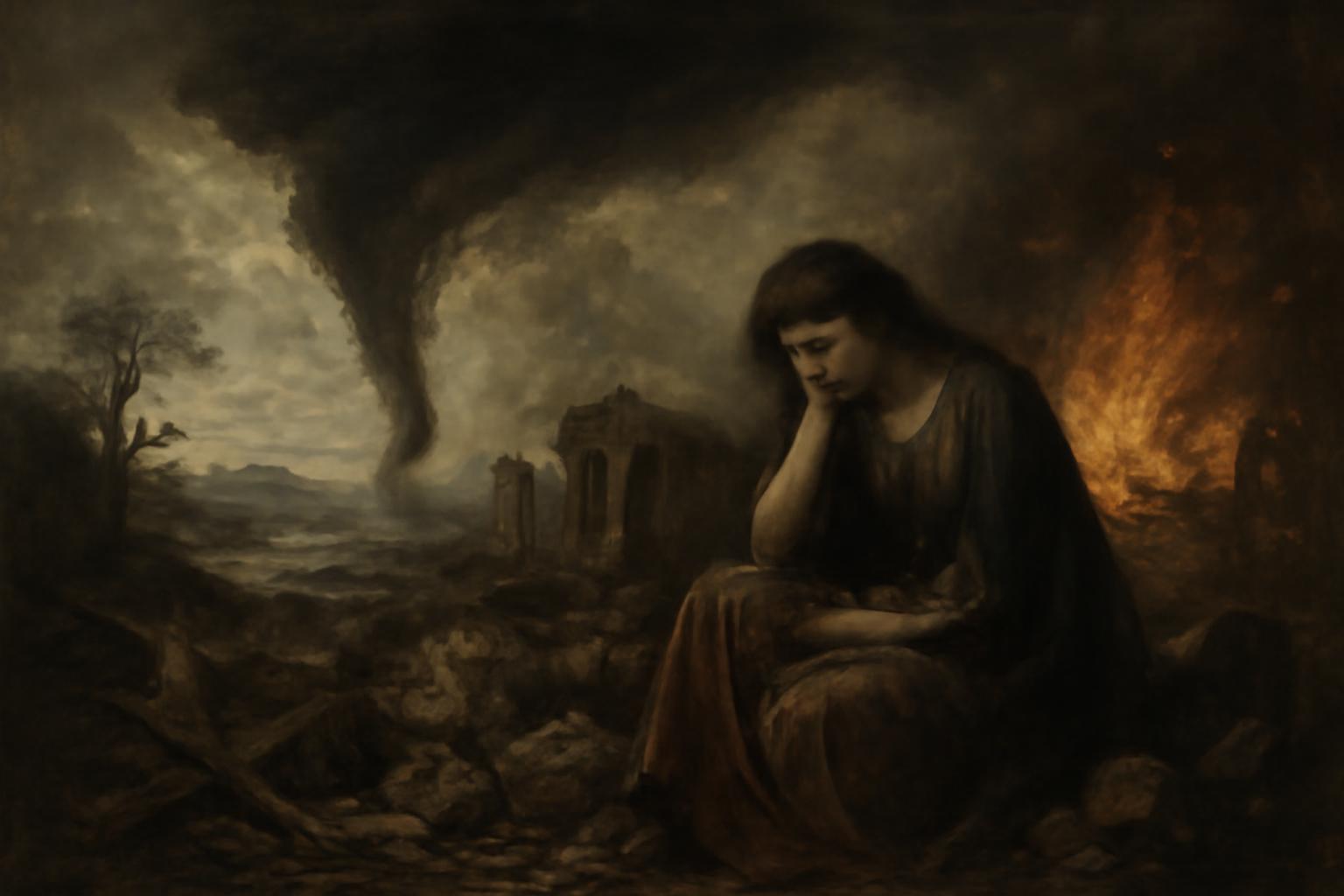Once again, the earth has convulsed beneath the feet of men and women, who scurry like frightened ants upon her crust, impotent before the vast, sublime indifference of nature’s wrath. Flames devour idyllic Californian hillsides with a Promethean hunger unheard of in previous annals, consuming dreams and fortunes alike in a single, suffocating breath—$53 billion turned to blackened ash, an ignoble reminder of humanity’s hubris in believing it could ever truly master fire. Meanwhile, the ground itself revolts in distant, disregarded Myanmar, rending apart all delusions of eternal order and laying low 4,500 souls in an instant, unlamented by the cold calculus of actuarial tables.
The ledger keepers, those modern Sisyphuses pushing numbers up spectral screens, register a grotesque sum—$131 billion—second only to that apocalyptic moment when Japan shuddered and the ocean reclaimed what belonged, if ever so briefly, to man. Behind these numbers, one senses Nietzsche’s abyss, its tragic laughter echoing through corridors filled not with heroes, but with the exhausted sighs of insurers, bureaucrats, and wretched survivors. Munich’s sentinels warn us that such plagues are no longer extraordinary—this suffering is the “new normal,” and the myth of progress is revealed to be nothing but another mask of fate.
O, how the Western spirit once sought to impose logos upon chaos, to wrest from the void a fragile veil of meaning! Now, the gods have returned in meteorological guise: flood, fire, wind, quake—each mocking the postmodern pretensions of risk management. Tote up the insured losses, write another report, and yet the shadow lengthens. Europe, for this season, has merely received the promise of future calamity—a mountain’s trembling augury, a village nearly erased, an intimation that no continent is sacrosanct.
We have exchanged the catharsis of Greek tragedy for the banality of quarterly losses. Nihilism blooms like deadly nightshade amid scorched fields, while the choruses are silent. There is no catharsis, only accumulation: of disaster, of damage, of numb resignation. The world’s climate, once the cosmic order of Heraclitus’ logos, is now a capricious tyrant; climate risk, a mantic oracle revealing nothing but mankind’s impotence. We are left, as Nietzsche warned, with the corpse of God—and no art to redeem the world’s sorrow, no order that can resist the encroaching chaos. Only the slow, inescapable unraveling, as the spirit of the West—once proud, now abraded—staggers from one catastrophe to the next, bearing mute witness to its own eclipse.
